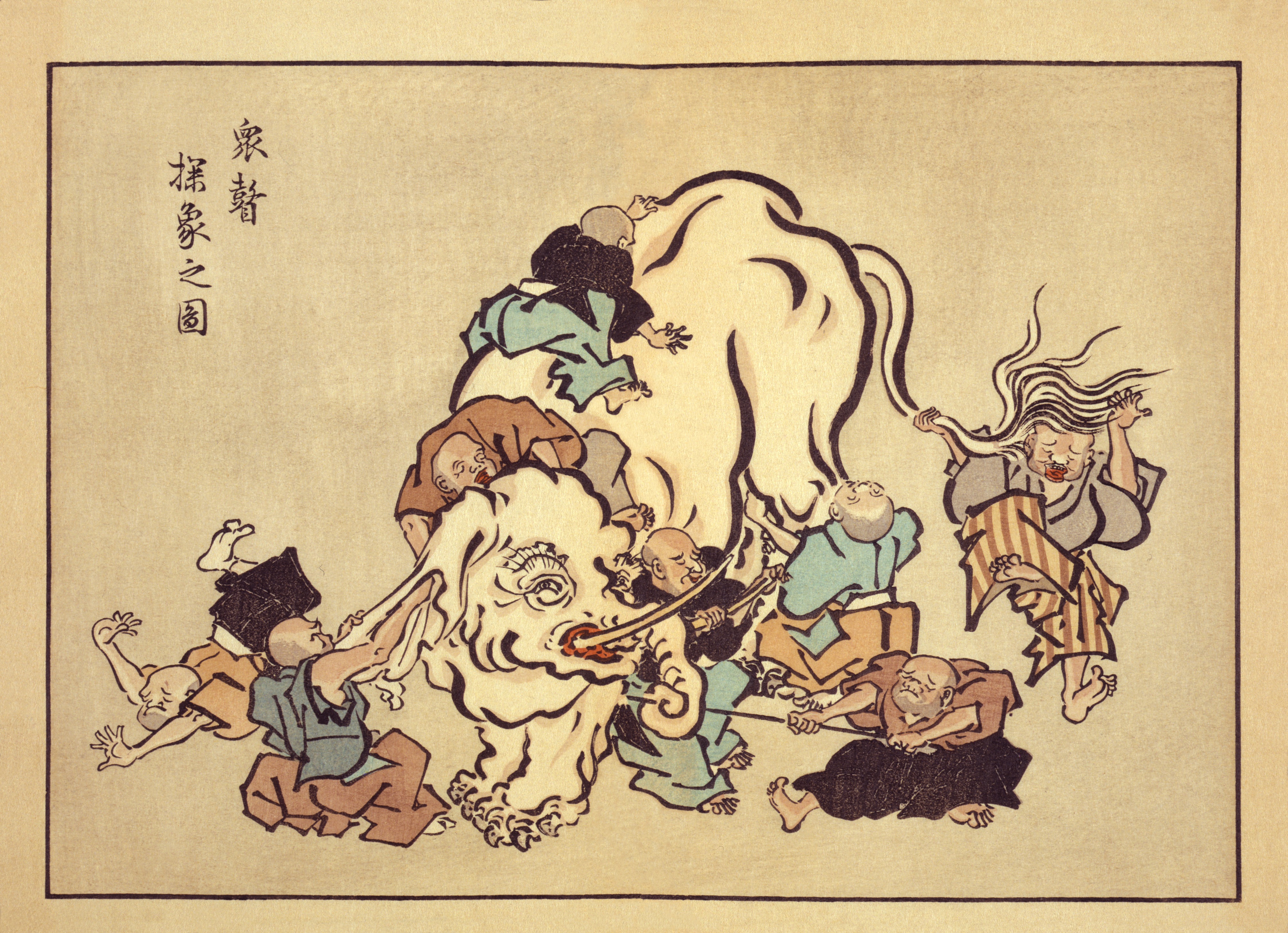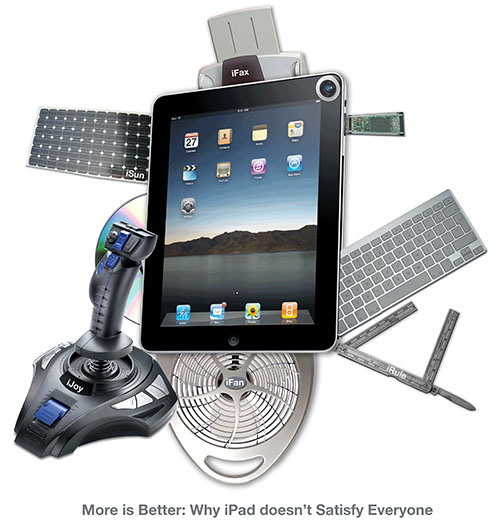
The illustration above comes from Wikipedia, which has a complete entry on the Asian proverb about blind monks who examine an elephant and generate multiple hypotheses of what it could be. In product design speak, these monks are doing collaborative problem solving with a shared goal of identifying a mysterious object—the elephant. The monks, the story goes, all come from different backgrounds: an old tailor touching an elephant’s ear describes it as cloth; an aging gardner hugging the leg imagines a tree trunk; an elephant’s tusk is envisioned as a weapon by an arms master. Each monk brings his own life’s worth of experience to bear on the problem, but each has very limited access to the whole. It’s easy to see how this story can be used to explain the pains of collaborative and cooperative group projects in which individuals focus on product design. Each person brings their own expertise to the table, hopefully contributing positively to the whole process. But this story is also a good metaphor for understanding problem solving in context of our very limited working memory capacity. Unlike elementary school math problems that we all calculated, real world problems are messy and don’t come with…

